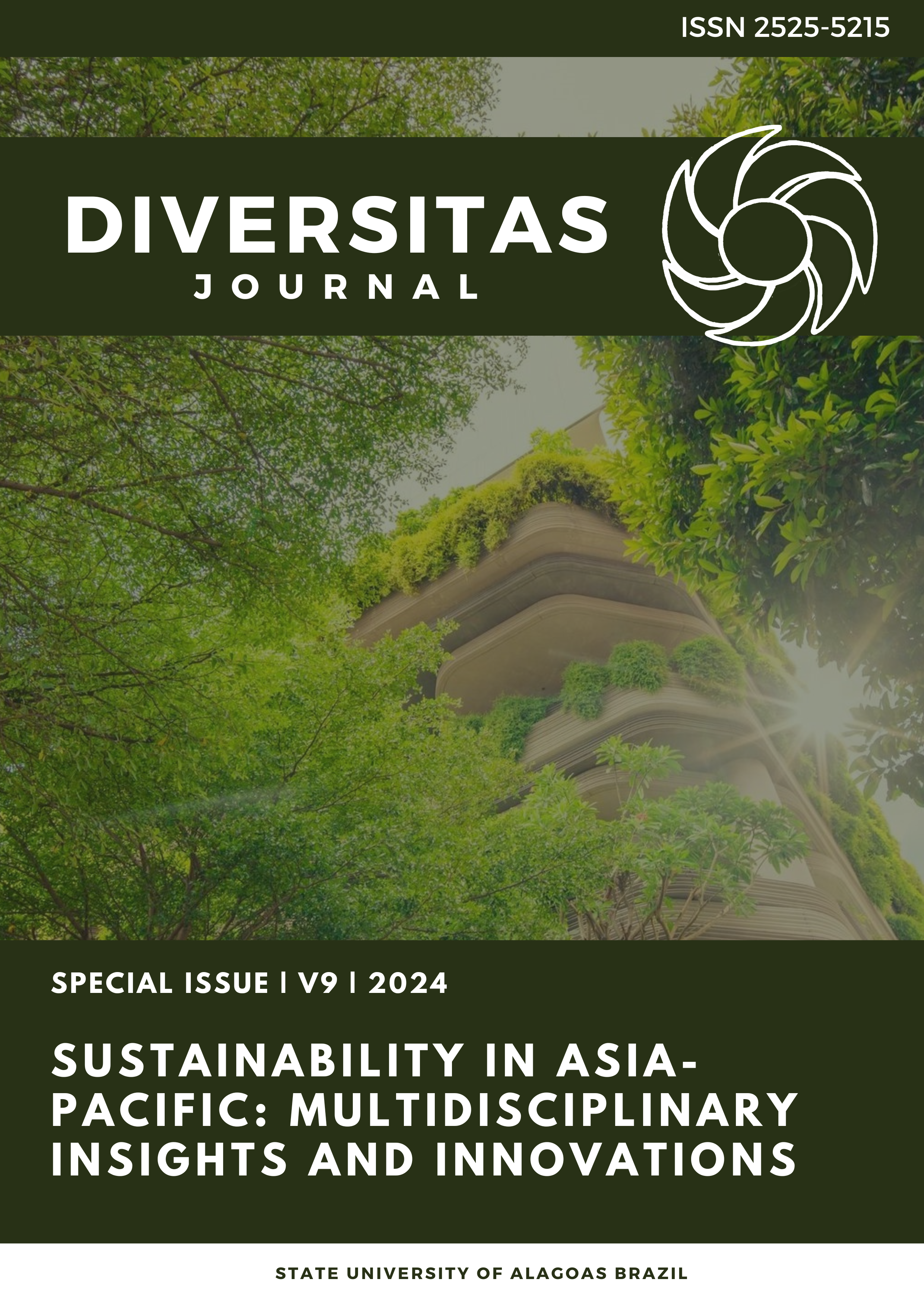Ethical challenges faced by Philippine public secondary school guidance counselors under the new normal
DOI:
https://doi.org/10.48017/dj.v9iSpecial1.2869Keywords:
mental health, ethics, pandemic, tele-counseling, dilemmaAbstract
This study aims to explore the impact of the ethical challenges faced by guidance counselors in public schools in Nueva Vizcaya in performing their tasks of counseling and providing other related services to the students in an online learning environment brought about by the COVID- 19 pandemic, and how they addressed the same. By a thorough understanding of the experiences of these public-school guidance counselors, it is hoped that new solutions or strategies to deal more effectively with such challenges can be offered. Using interpretative phenomenological analysis (IPA), this study examines the lived experiences of four (4) public secondary school guidance counselors who cater to the counseling needs of fifty-two public high schools in Nueva Vizcaya, Philippines. Results reveal that guidance counselors experience challenges, ethical and otherwise, in the delivery of their services to students. The most common ethical dilemmas pointed out by the participants are maintaining confidentiality of personal disclosures and student records, multiple relationships, awareness of a colleague's ethical transgression, and maintaining boundaries. Guidance counselors will always be part of the support group in the holistic formation of the learners, whether in the physical or virtual environment.Metrics
References
Agustina, D., Matra, S., & Karimah, S. (n.d.).Challenges of having online learning activities: University students’ perspectives. http://ineltal.um.ac.id/wp-content/uploads/2020/12/Dwi-Agustina-Sarlita-D.-Matra-and-Sayyidatul-Karimah-Challenges-of-Having-Online-Learning-Activities_University-Students%E2%80%99-Perspectives.pdf
American School Counseling Association (2016). ASCA Ethical Standards for School Counselors. https://www.schoolcounselor.org/getmedia/f041cbd0-7004-47a5-ba01-3a5d657c6743/Ethical-Standards.pdf
Amos, P.M., Bedu-Addo, P.K., & Antwi, T. (2020). Experiences of Online Counseling Among Undergraduates in Some Ghanaian Universities. SAGE Open, 10. https://doi.org/10.1177/2158244020941844
Ardi, Z., Putra, M. R. M., & Ifdil, I. (2017). Ethics And Legal Issues In Online Counseling Services: Counseling Principles Analysis. Jurnal Psikologi Pendidikan Dan Konseling: Jurnal Kajian Psikologi Pendidikan Dan Bimbingan Konseling, 3(2), 15. https://doi.org/10.26858/jpkk.v0i0.3657
Baloran, Eric T. (2020) Knowledge, Attitudes, Anxiety, and Coping Strategies of Students during COVID-19 Pandemic, Journal of Loss and Trauma, 25:8, 635-642, DOI: 10.1080/15325024.2020.1769300
Code of Ethics for Registered and Licensed Guidance Counselors in the Philippines - Code of Ethics. (n.d.). StuDocu. https://www.studocu.com/ph/document/lipa-city-colleges/psychology/code-of-ethics-for-registered-and-licensed-guidance-counselors-in-the-philippines/5503678
Corey, G., Corey, M. S., & Callanan, P. (2011). Issues and ethics in the helping professions. In Library Catalog (Blacklight) (8th ed). Brooks/Cole. https://searchworks.stanford.edu/view/9441872
Finlay, Linda & Gough, Brendan. (2008). Reflexivity: A Practical Guide for Researchers in Health and Social Sciences. 10.1002/9780470776094.
Geraldina, A. M., Suen, M., & Suanrueang, P. (2023). Online mental health services during COVID-19 pandemic in Indonesia: Challenges from psychologist perspective. PLoS One, 18(6) https://doi.org/10.1371/journal.pone.0285490
Hertlein, K. M., Blumer, M. L., & Mihaloliakos, J. H. (2015). Marriage and family counselors’ perceived ethical issues related to online therapy. The Family Journal, 23(1), 5-12. https://psycnet.apa.org/doi/10.1177/1066480714547184
Ifdil, I., Fadli, R. P., Suranata, K., Zola, N., & Ardi, Z. (2020). Online mental health services in Indonesia during the COVID-19 outbreak. Asian journal of psychiatry, 51, 102153. doi: 10.1016/j.ajp.2020.102153
Joshi, A., Tammana, S., Babre, T., & Kallianpur, R. (2020). Psychosocial response to COVID‐19 pandemic in India: Helpline counselors’ experiences and perspectives. Counseling and Psychotherapy Research, https://doi.org/10.1002/capr.12378
Kant, R. (2020). Covid-19 Pandemic: Looking in the mind of students during lockdown. Purakala. UGC CARE J, 31, 508-522. https://doi.org/10.55014/pij.v4i2.5
Kim, N., & Lambie, G. W. (2018). Burnout and Implications for Professional School Counselors. The Professional Counselor, 8(3), 277–294. https://doi.org/10.15241/nk.8.3.277
Knettel, B. A., Luke, M. M., Kiweewa, J. M., Henry, N., Darkis, J. T., Obi, A., & Ojiambo, D. (2020). Stakeholder Perspectives on School-Based Guidance and Counseling in Uganda: Emerging Priorities for Student Support and Teacher Training. International Journal for the Advancement of Counselling, 42(1), 81-96. https://doi.org/10.1007/s10447-019-09390-w
Larkin, M., Watts, S. and Clifton, E., 2006. Giving voice and making sense in interpretative phenomenological analysis. Qualitative Research in Psychology, 3(2), pp.102-120. https://psycnet.apa.org/doi/10.1191/1478088706qp062oa
McConnell, K. R., Geesa, R. L., Mayes, R. D., & Elam, N. P. (2020). Improving School Counselor Efficacy Through Principal-Counselor Collaboration: A Comprehensive Literature Review. Mid-Western Educational Researcher, 32(2)
Sasangohar, F., Bradshaw, R., Marianne, M. C., Flack, J. N., Fowler, J. C., Freeland, D., Head, J., Marder, K., Orme, W., Weinstein, B., Kolman, J. M., Kash, B., & Madan, A. (2020). Adapting an Outpatient Psychiatric Clinic to Telehealth During the COVID-19 Pandemic: A Practice Perspective. Journal of Medical Internet Research, 22(10) https://doi.org/10.2196/22523
Villarreal-Davis, C., Sartor, T. A., & McLean, L. (2021) Utilizing Creativity to Foster Connection in Online Counseling Supervision, Journal of Creativity in Mental Health, 16:2, 244-257, DOI: 10.1080/15401383.2020.1754989
Zeng, Y., Sun, W., Wang, M., Wei, J., Sun, G., & Hu, J. (2023). The association between online class-related anxiety and academic achievement among undergraduates. Social Behavior and Personality, 51(7), 1-13. https://doi.org/10.2224/sbp.12462
Downloads
Published
How to Cite
Issue
Section
License
Copyright (c) 2024 Sarah Bless Sanchez-Maddela, Rosalie Dela Cruz-Cada

This work is licensed under a Creative Commons Attribution 4.0 International License.
The Diversitas Journal expresses that the articles are the sole responsibility of the Authors, who are familiar with Brazilian and international legislation.
Articles are peer-reviewed and care should be taken to warn of the possible incidence of plagiarism. However, plagiarism is an indisputable action by the authors.
The violation of copyright is a crime, provided for in article 184 of the Brazilian Penal Code: “Art. 184 Violating copyright and related rights: Penalty - detention, from 3 (three) months to 1 (one) year, or fine. § 1 If the violation consists of total or partial reproduction, for the purpose of direct or indirect profit, by any means or process, of intellectual work, interpretation, performance or phonogram, without the express authorization of the author, the performer, the producer , as the case may be, or whoever represents them: Penalty - imprisonment, from 2 (two) to 4 (four) years, and a fine. ”


















